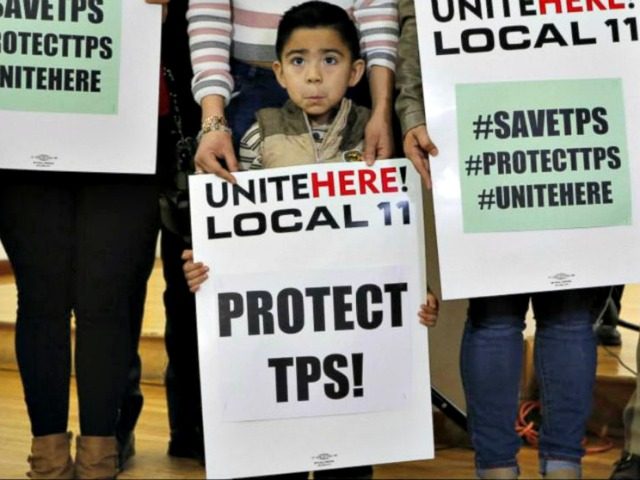Approximately 500 aliens from the war-torn African country of Somalia began re-registering Monday for another 18 months of protection from deportation under the Temporary Protected Status (TPS) program.
Homeland Security (DHS) Secretary Kirstjen Nielsen announced this latest extension of “temporary” protection last month for otherwise deportable Somalis who have already been blocked from being removed to their home country since at least 2012, with some receiving the protection for back as 1991. Somalis have had their TPS extended continually, most recently under the Obama administration. Under this latest 18 month extension, the earliest the Somalis will be eligible for deportation is March 2020 — if the administration does not further extend their TPS.
Registration had already begun for Nielsen’s other TPS extension, for Yemenis, who have only been protected since last year.
The controversial program exists to prevent people being deported to countries where they face imminent danger from natural disasters or, as in the case of both Somalia and Yemen, war. “After carefully reviewing conditions in Somalia with interagency partners, Secretary Nielsen determined the ongoing armed conflict and extraordinary and temporary conditions that support Somalia’s current designation for TPS continue to exist,” the DHS release for this latest extension explains.
Somalia has been ravaged by civil war since the 1980s and was placed on the TPS list in 1991 when the last stable government collapsed. In addition to the 500 or so TPS-protected Somalis, more than 150,000 have been settled in the United States as refugees. The much larger group is unaffected by the extension of TPS but, as Center for Immigration Studies Executive Director Mark Krikorian pointed out Monday, some of those not protected by TPS are in fact deported which, in his view, negated the notion the country was still eligible for TPS:
We deported more than 500 people to Somalia last year, so why are we renewing TPS? That "temporary" status is supposed to be only for those situations where we literally can't deport people due to natural calamity or civil war. That obviously no longer applies to Somalia. https://t.co/xBaFPv2rCC
— Mark Krikorian (@MarkSKrikorian) August 27, 2018
TPS was created under the Immigration and Nationality Act of 1990 and has since become controversial as continual extensions have transformed the “temporary” status into a de facto amnesty program. As noted, the status for Somalis has been extended time and again since virtually the beginning of the program. In Somalia, however, the civil war that gave rise to the status is still ongoing, although at a much-diminished intensity.
Other long-running “temporary” deportation shields under TPS have a much more tenuous link to their original justifications. The Trump administration, bucking the near-universal tendency among past administrations to indefinitely extend these protections, has announced the slow wind-down of TPS originally granted for an earthquake in Haiti eight years ago, a series of earthquakes in El Salvador 17 years ago, a hurricane in Honduras and Nicaragua 19 years ago, and a famine and civil war in Sudan first recognized 21 years ago.
To activists of the political left, dropping all pretense and making “Temporary” Protective Status permanent amnesty has been a major thrust in recent years. The American Civil Liberties Union (ACLU) and a pair of pro-illegal immigration labor unions are suing to force the government to extend TPS indefinitely, in part because President Donald Trump’s alleged remark about “sh*thole countries” is evidence of “repeatedly-expressed racism toward non-white, non-European people from other countries” that renders his DHS’s decisions invalid.
Opposition to ending any TPS, however, extends into the Trump administration itself. In November, Breitbart News obtained internal DHS documents showing one of the political appointees brought to the agency by then Secretary John Kelly wrote an extensive letter arguing for keeping more than 300,000 Honduran, Nicaraguan, and Salvadorian TPS-protectees in the country indefinitely, in part because they were “liv[ing] the American dream.”
Documents made public Monday as part of the ACLU’s litigation make clear that pro-TPS elements at DHS and the State Department are continuing to push for extensions of the status well beyond the disasters and conditions that gave rise to the designation.

COMMENTS
Please let us know if you're having issues with commenting.